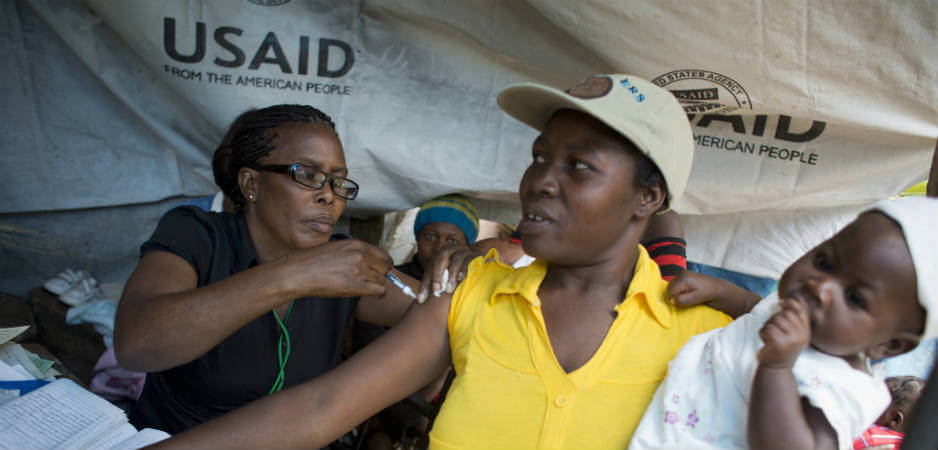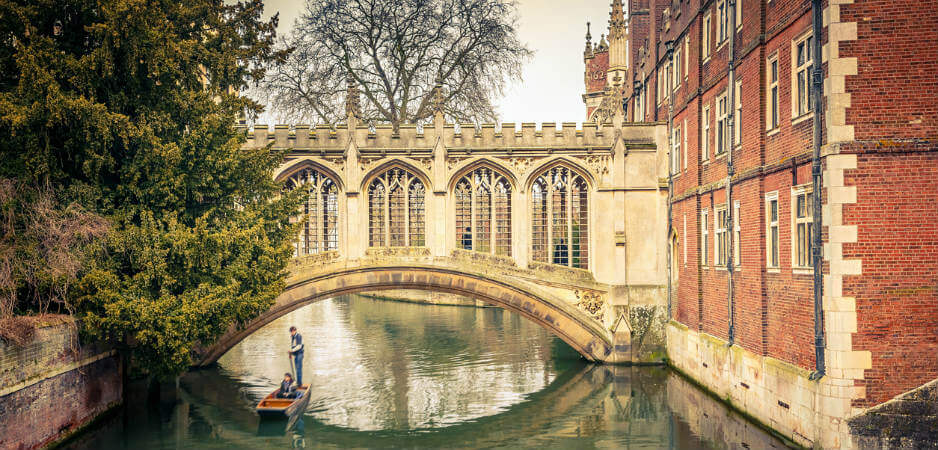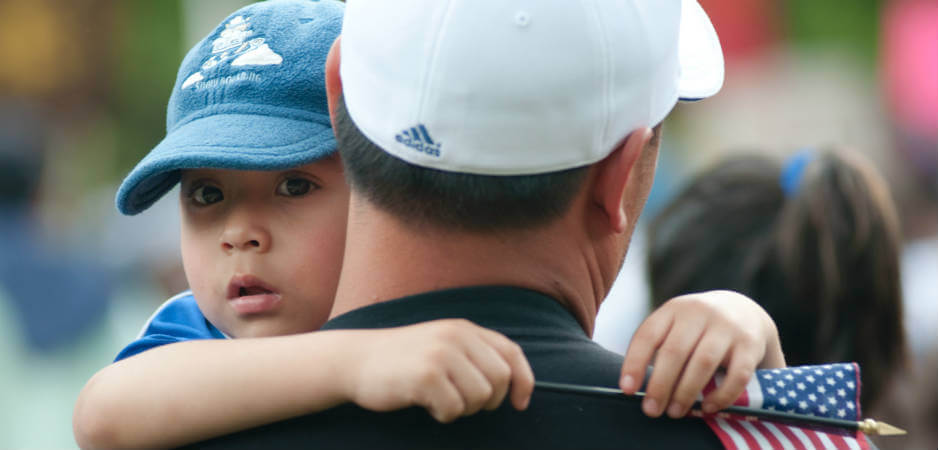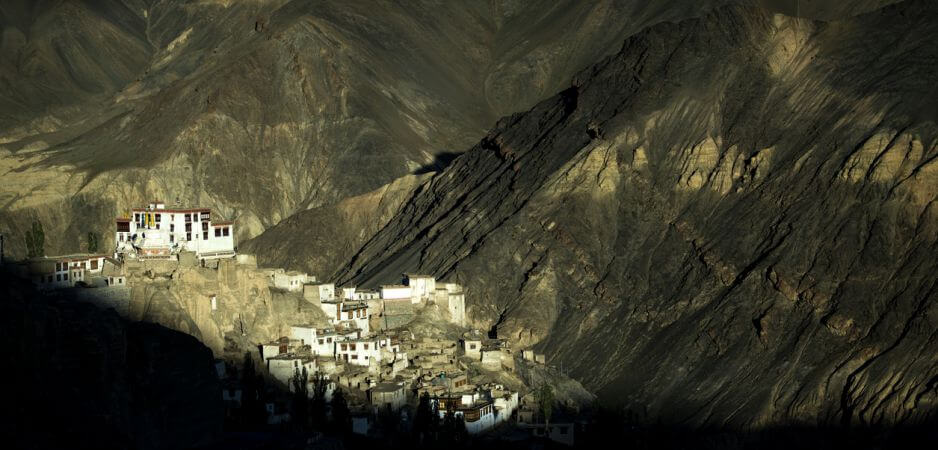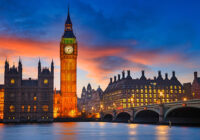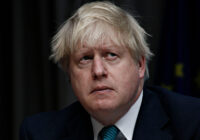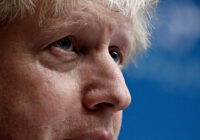As faith declines in the global economy, nation states, institutions and ideas, young men are turning to radical religious identities.
Even by recent standards, this week was bloody. An attack in Egypt’s Minya province killed at least 28 Coptic Christians and wounded dozens. These innocent souls were headed to the Saint Samuel Monastery when masked attackers in three pickup trucks opened fire on them. This attack on Coptic Christians who comprise 10% of Egypt’s population forms part of a pattern. In April, at least 45 died and more than 100 were wounded in two suicide attacks on churches in Tanta and Alexandria during Palm Sunday ceremonies.
Coptic Christians in Egypt have become convenient whipping boys for Islamic extremists. First, terrorist organizations such as the Islamic State are highly sectarian. They do not accept other forms of worship, including liberal forms of Islam. Coptic Christians lie beyond the pale for them and are fair game. Second, every successful attack undermines President Abdel Fattah al-Sisi’s repressive regime. Elizabeth Perego argues that repression has radicalized Islamist groups in Egypt. Egyptian military and police regularly arrest and sometimes torture suspected Muslim Brotherhood sympathizers, including women and children. This radicalizes angry young men and begets violence, leading to a vicious cycle that shows no signs of ending.
Egypt is not the only place suffering from the cycle of violence. Even as US President Donald Trump visited Saudi Arabia, Israel and Europe, Kenya, Southeast Asia and Britain experienced attacks. In Kenya, Somali militants killed eight security officers through two roadside bombs. In the Philippines, the Islamic State claimed credit for the rampage of a city in Mindanao. The Indonesian capital Jakarta suffered a double bombing, and Manchester, the third largest city in the United Kingdom, experienced the country’s bloodiest terror attack since 2005.
TRAGEDY IN MANCHESTER
On May 22, Salman Abedi blew himself up outside an Ariana Grande concert in Manchester. This suicide bombing killed 22 people and injured 64. UK Home Secretary Amber Rudd declared that Abedi’s attack was more sophisticated than in the past, and “it [seemed] likely — possible — that he wasn’t doing this on his own.” Consequently, the government raised the terror threat to critical, the UK’s highest level. Rudd deployed 984 troops to guard sensitive locations around the country.
Over the last decade, terrorist attacks have become a regular feature of life in the UK. In 2006, the government first raised the terror threat level to critical during a major operation to foil a plot to blow up transatlantic airliners with liquid bombs. In the following year, it had to do so again to hunt for men who tried to bomb a London nightclub and attacked Glasgow Airport. This is only the third time ever and the first time since 2017 that terror threat levels have been deemed to be critical.
The government is nervous for a good reason. Apparently, Abedi was a mule, a person who uses a device someone else builds. This means he was unlikely to be a lone wolf and likely to be part of a larger network that might have plans to strike multiple locations. This is election season in the UK, magnifying opportunities for terror attacks in the country.
Abedi was 22-year-old born in Manchester to parents of Libyan descent. The BBC reports that he had a “really bad relationship” with his family. Abedi struggled at school and university. His parents tried to take him back to Libya several times and he struggled to adapt to the European way of life. The young man hung around “the wrong crowd and was very, very gullible.” Before leaving school in 2011, he became “more and more religious” and cut ties with former classmates.
The Islamic State has claimed responsibility for Abedi’s attack, saying “one of the caliphate’s soldiers placed bombs among the crowds.” It is too early for the murky details of the attack to see the light of day. However, it is an example of yet another homegrown Islamic terrorist in Europe, striking to claim innocent lives. Over the last three years, attacks have occurred in cities such as Paris, Berlin and London, leaving no place entirely safe.
Manchester is no stranger to terror. In June 1996, the Provisional Irish Republican Army (IRA) planted nearly 1,500 kilograms of homemade explosives in a lorry, detonating the biggest bomb in Britain since World War II. Miraculously, no one died in the bombing that injured more than 200 people. After 21 years, the IRA is no longer bombing British cities. The terrorists have changed.
Jeremy Corbyn, the leader of the Labour Party, has an idea why that may be the case. He takes the view that the UK’s foreign policy and intervention in wars abroad fuels the threat of “terrorism” at home. In Corbyn’s view, British interventions in Iraq, Syria, Libya and Afghanistan have not worked. In the middle of an election campaign, Corbyn courageously declared: “We must be brave enough to admit the ‘war on terror’ is not working.”
Corbyn might have a point. Robert Pape of the University of Chicago is a scholar on suicide terrorism who has found that 95% of suicide attacks from the 1980s to 2003 occurred “in response to a military occupation.” By military occupation, Pape means control of “the local government, the local economic system, and the local social system.” Pape makes the argument that suicide terrorism “is a response to loss of self-determination for their local community.”
Pape and Corbyn might be bang on the money when it comes to the reasons for suicide attacks in Kabul or Baghdad, but their argument does not entirely apply to homegrown terrorists like Abedi. They end up attacking the very countries “where they grew up and went to school.” Some even come from secular immigrant families who were brought up without religious zeal. What radicalizes these lost souls?
Part of the answer might lie in the examination of the past. The November 14, 2015, edition of The World This Week argued that terrorism arises from “deep disaffection and the disintegration of the political, economic and social fabric.” In the late 19th and early 20th centuries, terrorism emerged as a major political tool for those fighting for independence, democracy and justice. Russian Tsar Alexander II and Austrian Archduke Franz Ferdinand were perhaps the two most spectacular victims of this form of terrorism. Both were murdered by hotheads who found the status quo unacceptable and untenable.
Today’s terrorists share a similar disenchantment with the status quo. Muslim communities in Europe have long suffered much discrimination. Young men from these communities have found it hard to get jobs, rent homes or move up the social ladder. They have deep-seated grievances and a burning sense of injustice. Some who are deeply disaffected, highly isolated and socially maladjusted fall prey to charismatic clerics and radical ideologies. Some of these homegrown terrorists have gone off to fight in Syria and Iraq. A few like Abedi have unleashed carnage at home.
DRACULA NEVER DIES
Lee Kuan Yew, the late Singaporean statesman, worried incessantly about the disruptive and destructive forces of race, language and religion. He was right to do so. For centuries, European nation states strove to create uniform identities. France had no place for the Huguenots. In the UK, there was no room for the native tongues of the Welsh, the Scots and the Irish who were all forced to adopt English. The German fixation with racial purity is only too well known.
Unlike India or Southeast Asia, Europe does not have a tradition of disparate communities living side by side for centuries. The influx of immigrants who look different, eat exotic foods and pray in strange ways is a rather new phenomenon. It is causing much strain in formerly imperial societies where prejudices run deep, privilege stands strong and self-righteousness is second nature.
 To be fair, postwar Europe has made enormous strides in creating open, tolerant and liberal societies. Most immigrants can avail freedoms that would not be available to them back home. For years, Turkish immigrants in Germany had more freedom of religion than in the Kemalist Turkey they left behind. Similarly, Ahmadis from Pakistan in the UK could worship as they please without fear of banishment as apostates or bullets from Sunni hardliners.
To be fair, postwar Europe has made enormous strides in creating open, tolerant and liberal societies. Most immigrants can avail freedoms that would not be available to them back home. For years, Turkish immigrants in Germany had more freedom of religion than in the Kemalist Turkey they left behind. Similarly, Ahmadis from Pakistan in the UK could worship as they please without fear of banishment as apostates or bullets from Sunni hardliners.
In some ways, Europe’s record has been better than multiethnic societies like India or Southeast Asia. Arguably, tensions between communities have flared up less frequently and it has experienced fewer riots. Horrified by the Holocaust and World War II, Europe set out to tame primal forces of race, language and religion. There is more than an element of truth when Europeans argue that their societies have emerged as multicultural secular societies with Sadiq Khan and Zinedine Zidane as new patron saints.
Yet, like Dracula, primal forces may go to sleep but they never quite die. The July 3, 2016, edition of The World This Week observed how we are living in an age of fear, anger, hate and terror. That week, Istanbul, Dhaka and Baghdad experienced terrorist attacks. This author examined the rise of Islamic extremism in both Russia and Bangladesh. The particular reasons for the rise of radicalism in each country are different. In post-Soviet Russia, ethnicity is identity. Muslims from struggling regions move to Russia for jobs and are radicalized after facing relentless racism of a ruthless sort. In Bangladesh, unemployment, inequality and Saudi money form a toxic cocktail. Common to Muslims in both countries, as in many others, is a sense of injustice, a lack of hope and confusion as to collective identity.
In the days of the Cold War, people turned to socialism or capitalism. In the era of Pax Americana, capitalism has failed hundreds of millions and so have many Westphalian states. These states are often unable to provide their citizens social services, economic opportunities and justice. Some like Syria and Iraq have imploded. Others like Bangladesh and Nigeria are tottering. Even as states stumble, religion continues to be a powerful and subliminal force. The Russians have turned to the Orthodox Church and many Americans are frighteningly evangelical. With declining faith in existing institutions and ideas, people are seeking new collective identities and radical Islam offers a seductive alternative to desperate young men without hope.
Even hitherto tolerant Muslim societies are finding themselves under threat. On May 17, a sharia court in Indonesia’s Aceh province sentenced two gay men to 85 lashes in public. These two young men, aged 20 and 23, were found in bed together by vigilantes. Pertinently, gay sex is not illegal in the rest of Muslim-majority Indonesia and has been a part of the culture of the region. This is the first such conviction in Indonesia and Aceh is the only province where sharia is in force. Local officials in the world’s largest Muslim country claim that “people want to implement comprehensive Islamic teachings including the enacting of its criminal code.”
This reversion to rules based on religion and revealed authority instead of on reason and social deliberation is destructive and demented. The tectonic changes in a world of over 7 billion people are causing great fear among those who are being left behind. Hundreds of millions fear the future. They worry that they might not have jobs tomorrow, that they might be victims of some injustice or another in a deeply unequal world, and that they might not have a community to turn to in times of need. This fear often makes them turn to atavistic identities for solace. One of these is radical Islam.
In turn, the fear of Islam is making many revert to their national, ethnic or religious identities. They view Muslims with suspicion, questioning whether their proselytizing religion can allow diversity or liberty. This polarization and fragmentation of societies on religious lines is a global risk. For instance, in the aftermath of the Manchester attack, hate crimes doubled. Although Mancunians have demonstrated commendable solidarity, social bonds may weaken as primal identities reassert themselves. This, in turn, would make Islamic extremism more seductive for the likes of Abedi.
*[You can receive “The World This Week” directly in your inbox by subscribing to our mailing list. Simply visit Fair Observer and enter your email address in the space provided. Meanwhile, please find below five of our finest articles for the week.]
America’s Values Should Guide its Foreign Policy
Without the compass of values to guide foreign policy, we descend to profit and power and sacrifice principle and people.
Secretary of State Rex Tillerson addressed his State Department employees in Washington earlier this month. It was his first significant encounter with his charges since assuming his position shortly after President Trump’s inauguration. Tillerson touched on many issues in his remarks. Perhaps most noteworthy were his statements on the meaning of this administration’s America First policy and the role of values and interests in foreign policy making. As I wrote previously, his remarks were emphatically discouraging and demoralizing for State Department personnel as well as for billions of people around the world. More critically for America’s interests, they ignore America’s extraordinarily unique role in the world. Keeping our values as an integral part of US foreign policy serves more than a comforting remnant of hope for millions living under oppression abroad. Ignored in Tillerson’s remarks was the vital… Read more
The Cambridge of Spies
A Russian academic finds herself caught up in an unlikely spy scandal.
Between Foreign Secretary Boris Johnson’s push for the £100-million Royal Yacht Britannia, the current government’s “trading nation” narrative and Labour Party leader Jeremy Corbyn’s plan to put the economy on a nationalized train back to the 1970s, nostalgia seems to be writing the script of British political life. Unfortunately, Britain’s trend of going back to the future does not stop at the gates of Westminster. As one unfortunate Cambridge historian has found out, the unsettling paranoia that Russians in the West are all spies among us has made an unsettling comeback. The historian in question is Svetlana Lokhova, whose story is a disturbing exemplar of how tensions between Russia and the West are impacting the lives of average Russians living and working in the United Kingdom, Europe or the United States. Because of brief interactions with former White House National Security Adviser Michael Flynn within the… Read more
Beer Can Be a Win-Win for Jobs and Water in Sub-Saharan Africa
If early investments are made in industrial water efficiency, beer can be a win-win for jobs and water sustainability in sub-Saharan Africa.
The beer industry in sub-Saharan Africa has brought an influx of desperately needed jobs and capital to the region. This private investment and market growth can deliver the type of progress the international-development field has been working towards for decade and will be increasingly vital for meeting development goals. Continued growth in the beer industry should be strongly encouraged in tandem with support for improved efficiency in industrial water use to address the rapid exhaustion of water resources caused by brewing beer. If early investments are made in industrial water efficiency, beer can be a win-win for jobs and water sustainability in sub-Saharan Africa. Beer brands are steadily increasing their brewing facilities in sub-Saharan Africa. They are also increasing their investments in the region. For example, as of 2012, SABMiller planned to invest $2.5 billion in… Read more
The Greatest Problem Facing Latinos Under Trump
US mainstream media either ignores Latinos entirely or relegates them to symbols of immigration.
Despite recent attempts to bring national attention to the concerns of the Hispanic community, America’s Latinos remain largely invisible. As the first 100 days of Donald Trump’s presidency drew to a close, Hispanics took stock of their perceived place under the new administration. Hector Sánchez Barba, chair of the National Hispanic Leadership Agenda (NHLA), wrote of the “devastating impact” that Trump’s nativist rhetoric and immigration policies have had on the Latino community. Political analyst Victoria DeFrancesco Soto echoed Sánchez Barba in affirming that Trump and Attorney General Jeff Sessions’ principal accomplishment thus far has been instilling fear within minority communities through criminal measures that implicitly target blacks and Latinos. The National Council of La Raza asked Latinos to describe in a single word how Trump’s first 100 days in office have made them feel, and among the 1,400 respondents the most commonly used words… Read more
Solving the Kashmir Crisis
Can the China-Pakistan Economic Corridor lead to a solution of the Kashmir crisis?
After entering office, a good part of Indian Prime Minister Narendra Modi’s energy during his whirlwind international tours was spent trying to convince world leaders that Pakistan was a terrorist state in order to isolate it. So, when China held the One Belt One Road (OBOR) summit on May 14, which had leading countries of the international community in attendance, it was India that isolated itself by not participating. Pakistan was the center of attention as the China-Pakistan Economic Corridor (CPEC) is an important initiative of the OBOR strategy, an effort to link the economies of Asia and Europe.
Before the summit, Modi paid a visit to Sri Lanka in an effort to keep the island nation on India’s side. The shared Buddhist heritage was highlighted as the meeting took place during a big Buddhist festival. Modi invoked Buddha’s message of peace as an answer to… Read more
The views expressed in this article are the author’s own and do not necessarily reflect Fair Observer’s editorial policy.
Photo Credit: inFocusDC
Support Fair Observer
We rely on your support for our independence, diversity and quality.
For more than 10 years, Fair Observer has been free, fair and independent. No billionaire owns us, no advertisers control us. We are a reader-supported nonprofit. Unlike many other publications, we keep our content free for readers regardless of where they live or whether they can afford to pay. We have no paywalls and no ads.
In the post-truth era of fake news, echo chambers and filter bubbles, we publish a plurality of perspectives from around the world. Anyone can publish with us, but everyone goes through a rigorous editorial process. So, you get fact-checked, well-reasoned content instead of noise.
We publish 2,500+ voices from 90+ countries. We also conduct education and training programs
on subjects ranging from digital media and journalism to writing and critical thinking. This
doesn’t come cheap. Servers, editors, trainers and web developers cost
money.
Please consider supporting us on a regular basis as a recurring donor or a
sustaining member.
Will you support FO’s journalism?
We rely on your support for our independence, diversity and quality.



